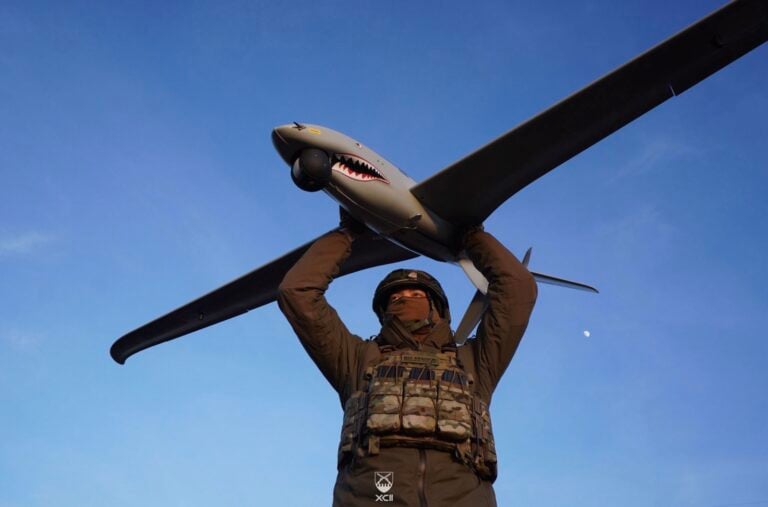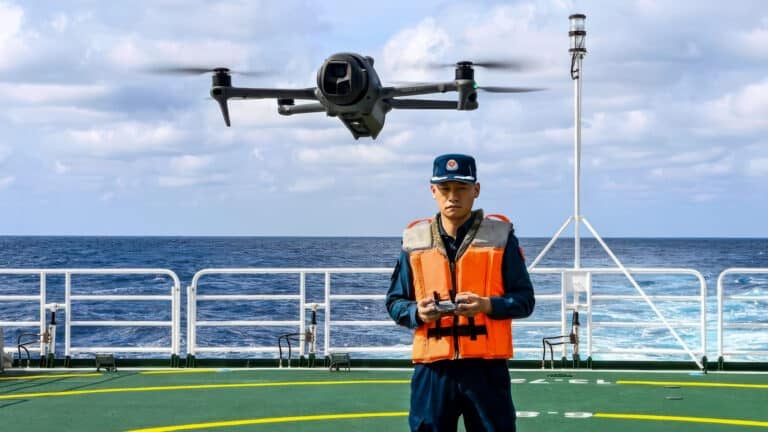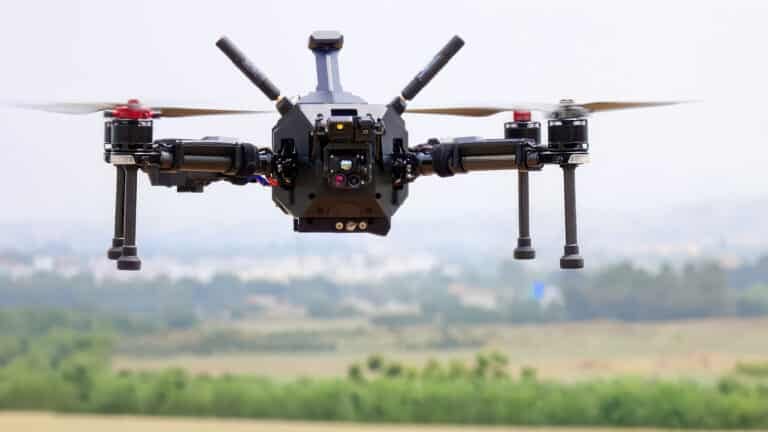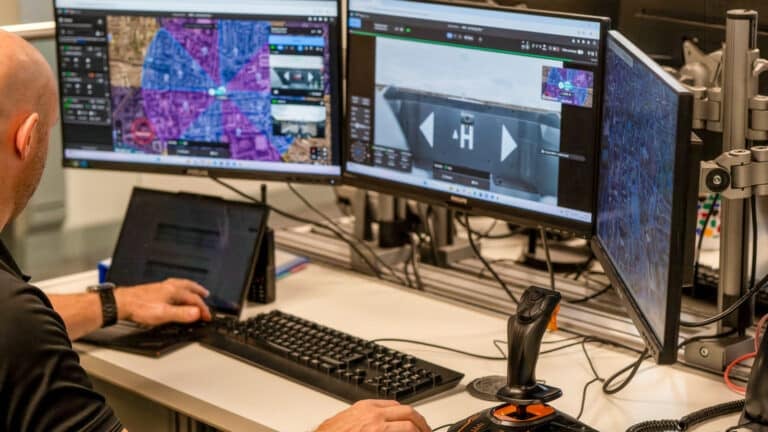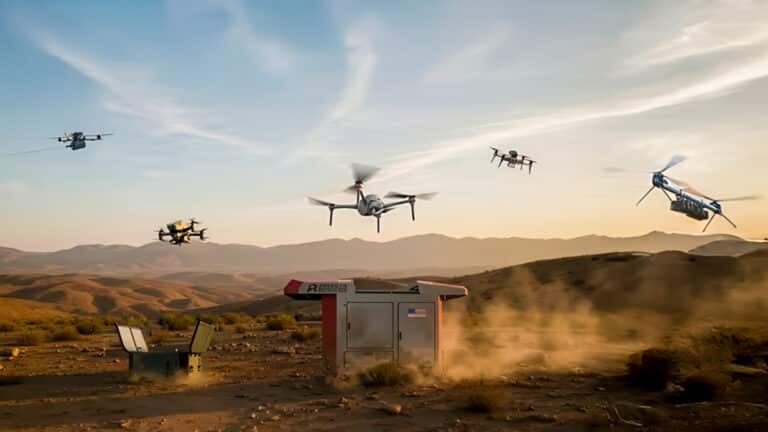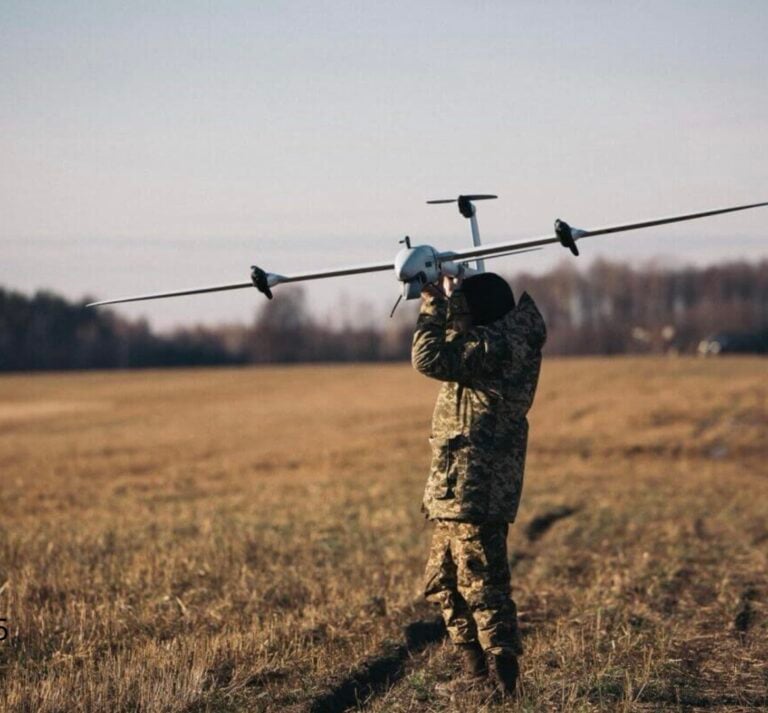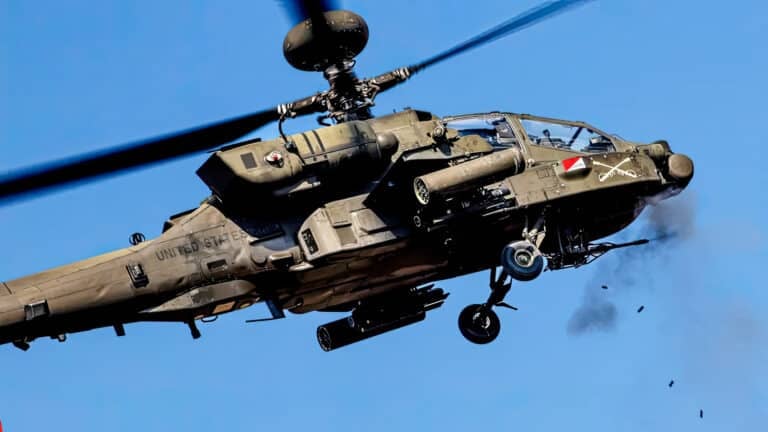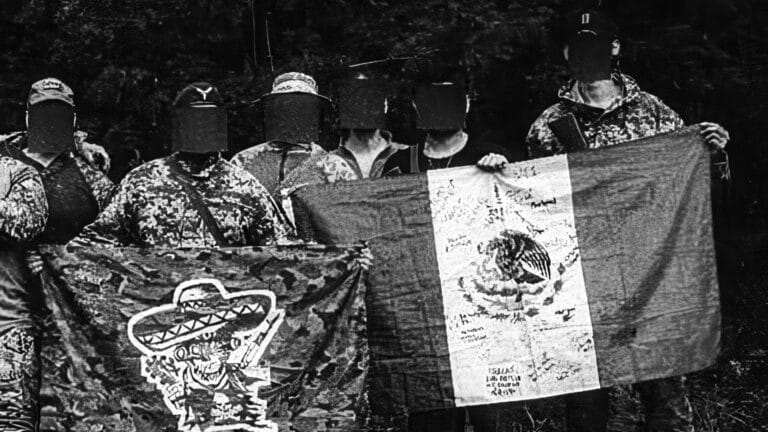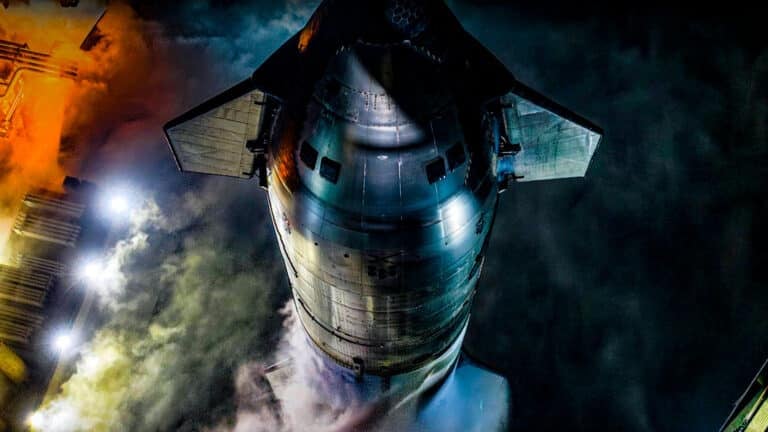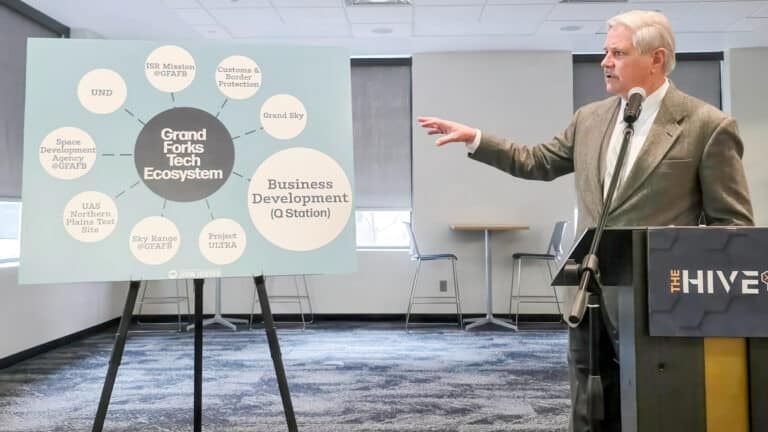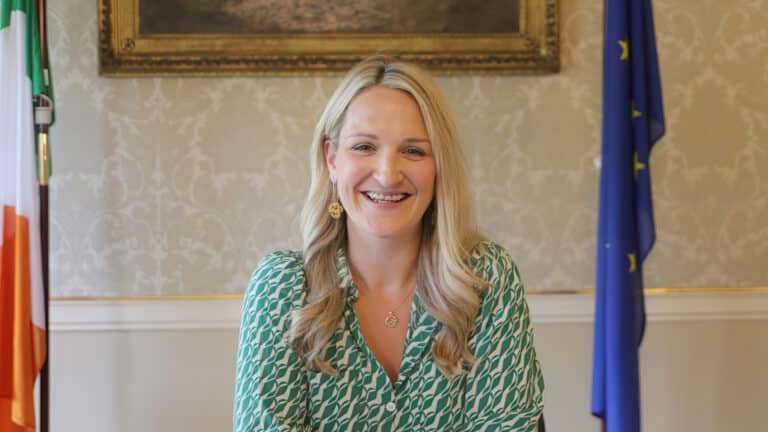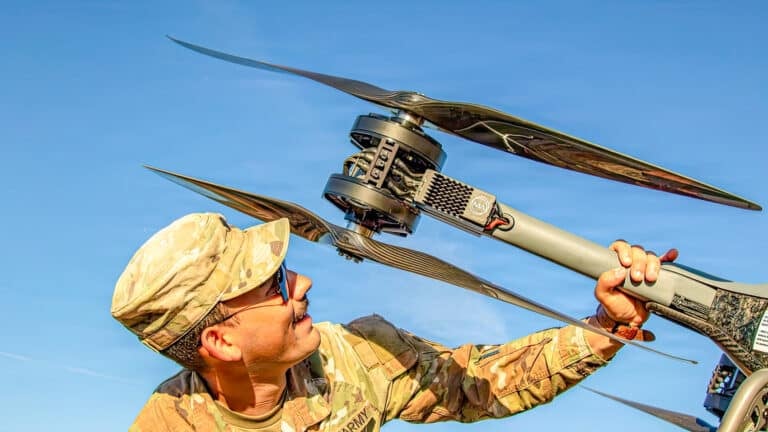TSA Security Rules Could Ground Walmart’s Drone Delivery Before It Takes Off

Check out the Best Deals on Amazon for DJI Drones today!
The Transportation Security Administration has proposed security screening requirements that would require fingerprint background checks for retail employees who handle items delivered by drones—potentially including every Walmart worker who stocks shelves. Industry leaders are pushing back hard, warning the regulations could kill the drone delivery business just as it’s gaining momentum.
The proposed rules, part of the FAA’s new Part 108 framework for beyond visual line of sight (BVLOS) operations, would treat 55-pound delivery drones the same as massive cargo planes. That means anyone touching a package destined for drone delivery—from warehouse workers to shelf-stockers—could need TSA Level 3 background checks including fingerprints, watchlist screenings, and criminal history reviews.
Industry Revolt Against “Security Theater”
Adam Woodworth, CEO of Alphabet-owned Wing (Walmart’s drone delivery partner), called out the absurdity in stark terms.
“As written today, everyone who walks into a Walmart would need to go through a TSA Level 3 background check, which is, like, fingerprints and stuff, because they could touch the macaroni and cheese on the shelf that’s going to go on the airplane because that’s now ‘cargo’ for an airplane,” he told Axios.
More than 1 million public comments flooded the FAA during the 60-day comment period that closed October 6, 2025. Amazon, Walmart, DoorDash, Wing, and Zipline all submitted opposition to the TSA requirements.
Walmart noted in its comments that “people who pick and pack items for delivery don’t have anything to do with flying drones, and thus, don’t present a security risk.” The retail giant warned the rules “could ensnare hundreds of thousands of store associates across our current and future drone delivery markets who would need to undergo a TSA background check—even if their jobs may not regularly involve drone deliveries.”
Practical Impacts on Drone Operators
Wing highlighted the operational nightmare in its submission, noting “the practical effect is that every goods supplier, package handler and package loader supporting a drone delivery service would be required to visit a TSA enrollment center, with turnaround times of up to 60 days.” For retailers with high turnover and seasonal workers, this creates an impossible compliance burden.
Zipline, another major drone delivery operator, called the TSA requirements “either redundant or wrong-sized” for package delivery operations. DoorDash pointed out the obvious double standard: other delivery modes—cars, bikes, even pedestrians—face no similar security requirements.
Congressional Pressure Builds
The timing couldn’t be worse for TSA. President Trump’s June 6, 2025 executive order directed the FAA to fast-track BVLOS rules to unlock widespread drone delivery. The FAA is now working toward a February 2026 final rule deadline.
Rep. Dina Titus (D-Nevada) and Rep. Rudy Yakym (R-Indiana), who lead the Congressional Unmanned Systems Caucus, want TSA to withdraw its proposed rules entirely and start over with actual industry consultation. According to a spokesman for Rep. Titus, TSA entered the FAA’s rulemaking process “at the 11th hour, without any industry outreach.”
The federal government shutdown that began October 1, 2025 has prevented both agencies from responding to requests for comment about the controversy.
DroneXL’s Take
This is regulatory overreach at its most absurd—and it threatens to strangle an industry that’s finally proving it can work. We’ve covered Walmart and Wing’s successful operations in Dallas-Fort Worth, where they’ve completed over 150,000 deliveries since 2021. The system works. The drones are safe. The public loves the convenience.
But here’s TSA, treating a 25-kilogram (55-pound) autonomous aircraft like a Boeing 737. The security logic is broken: if someone wants to weaponize a small package, they don’t need to infiltrate Walmart’s supply chain—they can just buy the item and modify it themselves. The real risk isn’t store employees; it’s the same bad actors who already threaten aviation through other means.
DroneXL has consistently opposed bundled security requirements in Part 108, and we’ve urged readers to comment on the NPRM. The industry showed up with over 1 million comments. Now we’ll see if the FAA has the backbone to tell TSA: thanks, but no thanks.
The bottom line from the Axios article says it best: “If a nefarious character wants to drop a burrito on your house, it’s not likely to cause a national security threat.” Security should be proportional to actual risk—not security theater that kills innovation.
What do you think? Share your thoughts in the comments below.
Photo credit: Walmart / Wing
Discover more from DroneXL.co
Subscribe to get the latest posts sent to your email.
Check out our Classic Line of T-Shirts, Polos, Hoodies and more in our new store today!
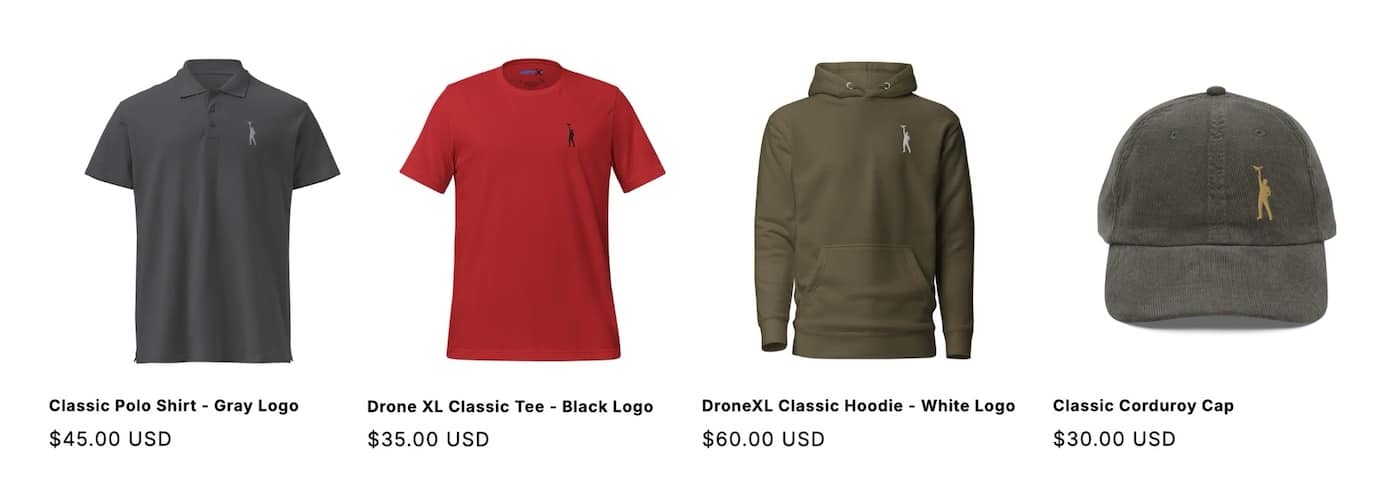
MAKE YOUR VOICE HEARD
Proposed legislation threatens your ability to use drones for fun, work, and safety. The Drone Advocacy Alliance is fighting to ensure your voice is heard in these critical policy discussions.Join us and tell your elected officials to protect your right to fly.
Get your Part 107 Certificate
Pass the Part 107 test and take to the skies with the Pilot Institute. We have helped thousands of people become airplane and commercial drone pilots. Our courses are designed by industry experts to help you pass FAA tests and achieve your dreams.

Copyright © DroneXL.co 2026. All rights reserved. The content, images, and intellectual property on this website are protected by copyright law. Reproduction or distribution of any material without prior written permission from DroneXL.co is strictly prohibited. For permissions and inquiries, please contact us first. DroneXL.co is a proud partner of the Drone Advocacy Alliance. Be sure to check out DroneXL's sister site, EVXL.co, for all the latest news on electric vehicles.
FTC: DroneXL.co is an Amazon Associate and uses affiliate links that can generate income from qualifying purchases. We do not sell, share, rent out, or spam your email.




